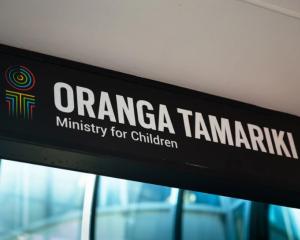Azalia Savage can be a bright and bubbly youngster, but when her health began mysteriously deteriorating, her parents received a heartbreaking diagnosis.
Their 3-year-old has a degenerative, terminal condition called CLN2 Batten disease.
Mother Sheree Morrow said she and partner Kelvin Savage were first told they could expect the second of their three children would live to about age 15. But after doing some internet research, "we now know it's more like 8 to 10".
Morrow said she was left feeling "just numb - not knowing what the future is going to hold
Batten disease is a group of rare disorders involving inherited mutations of so-called CLN genes. One study in Canada estimated the incidence of CLN2 to be 9 cases in 100,000 births. If both parents carry the CLN2 gene mutation, there is a 25 per cent chance a child will inherit two faulty copies of the gene and develop the disease, usually by age 7.
In CLN2 disease an enzyme that breaks down wastes, proteins and fatty compounds in cells is produced in insufficient quantities or isn't active enough. Speech, language, vision, intellect and movement progressively deteriorate.
Azalia's problems emerged when she was around 18 months old.
"She had a few words then they disappeared," said Morrow. "She wouldn't play peek-a-boo or chase."
At around 2-½ to 3 she was diagnosed with autism. Seizures began and have got worse. They are now "like a shock" and Azalia flies backwards and collapses three or four times a day, sometimes more.
"She has regressed in a way that she needs fulltime supervision, can no longer walk down steps, feed herself accurately and is very unbalanced," said Morrow.
There is no cure for the disease, although an extremely expensive medicine that can slow its progression was in February licensed for use in New Zealand; no funding application has been made to state medicines buyer Pharmac.
In Britain, the National Institute of Health and Care Excellence considered last year that at a cost of £500,000 (around $968,000) a year for one patient, cerliponase alfa, which is infused directly into the brain, was not cost-effective. However the medicine is funded in Australia on the Government's Life-Saving Drugs Programme.
Morrow said she had talked to Starship children's hospital in Auckland about Azalia potentially entering a trial, but she wasn't eligible. She understood that although the drug was now licensed, it was not yet available.
Azalia has been in and out of hospital and has had problems with her seizure medication.
Morrow is battling authorities for an increase in her daughter's current 2-½ hours a day of teacher aide state funding.
"At the moment she is bright and bubbly. She does well at childcare," said Morrow, who is a childcare worker at the same centre.
Azalia has medical approval for non-psychoactive cannabis-derived CBD oil, which Morrow hopes will help with the seizures and boost her appetite, but she said the family, who live in Tauranga, can't afford the cost, expected to be about $500 a month.
A Givealittle crowdfunding page has been set up to raise money to help with Azalia's care.
Azalia's diagnosis has raised the question of whether her siblings, Isabelle, 8, and Neko, 1, have the disease.
"They don't believe Isabelle would have it because she would have shown signs by now."
It was yet to be decided whether she should be tested now, or later as an adult, to see if she is a carrier of one copy of the faulty gene. Testing of Neko will be discussed with the Tauranga Hospital next month.
"We'll be pushing for him to be tested."












